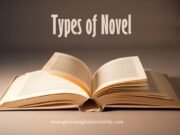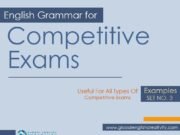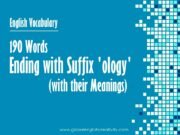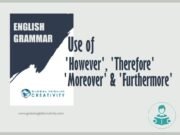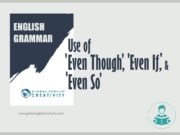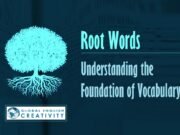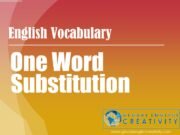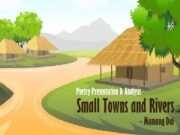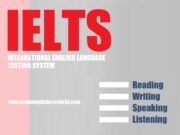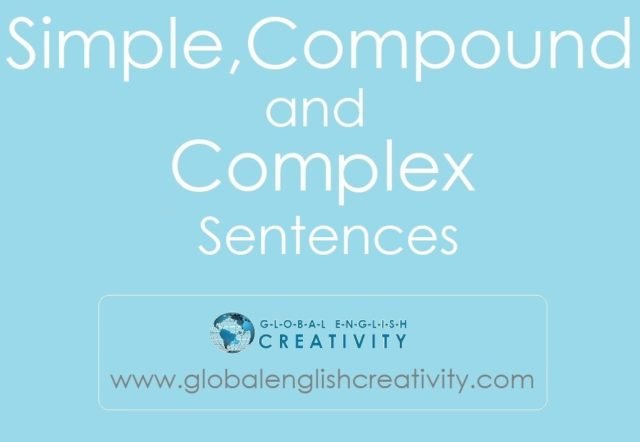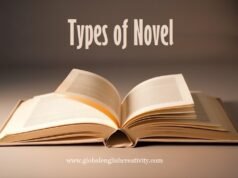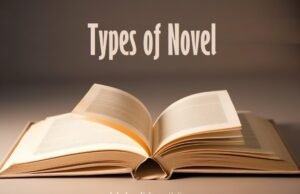| Simple Sentence |
A simple sentence structure contains one independent clause and no dependent clauses. It has only one Subject and one Predicate. e.g. He reads. e.g. They were playing cricket on the ground. e.g. In the evening, he came and helped her. |
- Despite being ill, he took the exams.
- On seeing the police, he ran away.
- Having completed the work, he went home.
- She is an intelligent girl.
- He took his father’s advice.
| The Simple Sentence contains a subject and verb. It expresses a complete thought.
e.g. Henry (subject) plays (verb) football every afternoon. Examples: |
| Compound Sentence |
A compound sentence is composed of at least two independent clauses. It does not require a dependent clause. It comprises of two or more Coordinate clauses.
Examples: |
- He was ill, but he attended the meeting.
- John hurt Clara, yet she cares for him a lot.
- He saw the police and he ran away.
- Do not touch the electric wire or you will get the shock.
- She was scared, so she did not open the door.
| In Compound Sentence, there are multiple Independent Clauses and no dependent clause. All the clauses are joined together by coordinating conjunctions. Such sentences have two finite verbs and two subjects.
Examples: |
| Complex Sentence |
A complex sentence has one or more dependent clauses (also called subordinate clauses). It comprises of one Main clause and one or more Subordinate Clauses.
|
- If you work hard, you will pass the exam.
- They did not go there because it was raining heavily.
- Although he was very poor, he educated his children.
- As it was very hot, everyone had cold drinks.
- Unless you help, the problem will not be solved.
| Complex sentence consists of at least one independent clause and one dependent clause. There are two finite verbs joined by subordinating conjunction. Subordinate conjunctions connect two unequal parts, e.g., dependent and independent clauses.
Here is the list of subordinating conjunctions: Examples: |
Exercise 1: Identify the Sentence Type
Identify whether each sentence is ‘Simple’, ‘Compound’, or ‘Complex’.
- The dog barked loudly.
Answer: Simple - I wanted to visit my friend, but she wasn’t at home.
Answer: Compound - Although the weather was cold, we went hiking.
Answer: Complex - He enjoys playing soccer and watching movies.
Answer: Simple - I stayed home because I was feeling unwell.
Answer: Complex
Exercise 2: Combine Sentences
Combine the sentences into ‘Compound’ or ‘Complex’ sentences.
- The sun set. The sky turned orange. (Compound)
Answer: The sun set, and the sky turned orange. - She missed the train. She was late for the meeting. (Complex)
Answer: Because she missed the train, she was late for the meeting. - He worked hard. He didn’t win the prize. (Compound)
Answer: He worked hard, but he didn’t win the prize. - I went to the library. I needed to borrow a book. (Complex)
Answer: I went to the library because I needed to borrow a book. - The students were excited. They had a school trip planned. (Compound)
Answer: The students were excited, for they had a school trip planned.
Exercise 3: Sentence Conversion
Rewrite the sentences as instructed.
- Simple → Compound:
-
- I finished my homework. I went out to play.
- Answer: I finished my homework, and I went out to play.
- Compound → Complex:
-
- He was tired, so he took a nap.
- Answer: Because he was tired, he took a nap.
- Complex → Simple:
-
- Because it was raining, we canceled the picnic.
- Answer: We canceled the picnic due to the rain.
Exercise 4: Fill in the Blanks
Fill in the blanks with suitable conjunctions to make ‘Compound’ or ‘Complex’ sentences.
- I love chocolates, ______ I don’t eat them often. (Compound)
Answer: I love chocolates, but I don’t eat them often. - ______ he is hardworking, he didn’t pass the exam. (Complex)
Answer: Although he is hardworking, he didn’t pass the exam. - The baby cried ______ she was hungry. (Complex)
Answer: The baby cried because she was hungry. - We wanted to go hiking, ______ it started to rain. (Compound)
Answer: We wanted to go hiking, but it started to rain. - He doesn’t like coffee ______ tea. (Compound)
Answer: He doesn’t like coffee or tea.
Exercise 5: Create Your Sentences
Here are sample answers:
- Write a Simple Sentence about your favorite hobby.
Answer: I love reading books. - Write a Compound Sentence about your daily routine.
Answer: I wake up early, and I go for a jog. - Write a Complex Sentence about a goal you want to achieve.
Answer: I want to learn French because I plan to study in France.
Exercise 6: Error Correction
Correct the errors in the sentences.
- She was hungry and she ate a sandwich because she didn’t have breakfast. (Mixed structure)
Answer: She was hungry, so she ate a sandwich because she didn’t have breakfast. - He study hard, but he failed the test. (Verb tense error)
Answer: He studied hard, but he failed the test. - After we won the game we celebrated at the café. (Punctuation error)
Answer: After we won the game, we celebrated at the café.
also see:
| ONLINE GRAMMAR QUIZZES |
| ENGLISH GRAMMAR_1 |
| ENGLISH GRAMMAR_2 |
| GRAMMAR: SPOT THE ERROR |
| USEFUL EXPRESSIONS IN ENGLISH SPEAKING |
| WORD FORMATION PROCESSES |
| PHONETICS |

